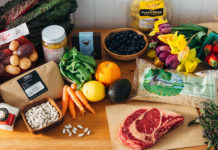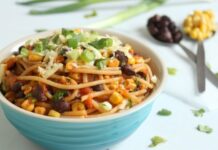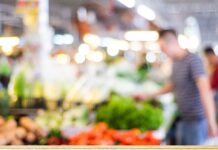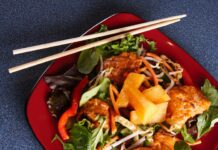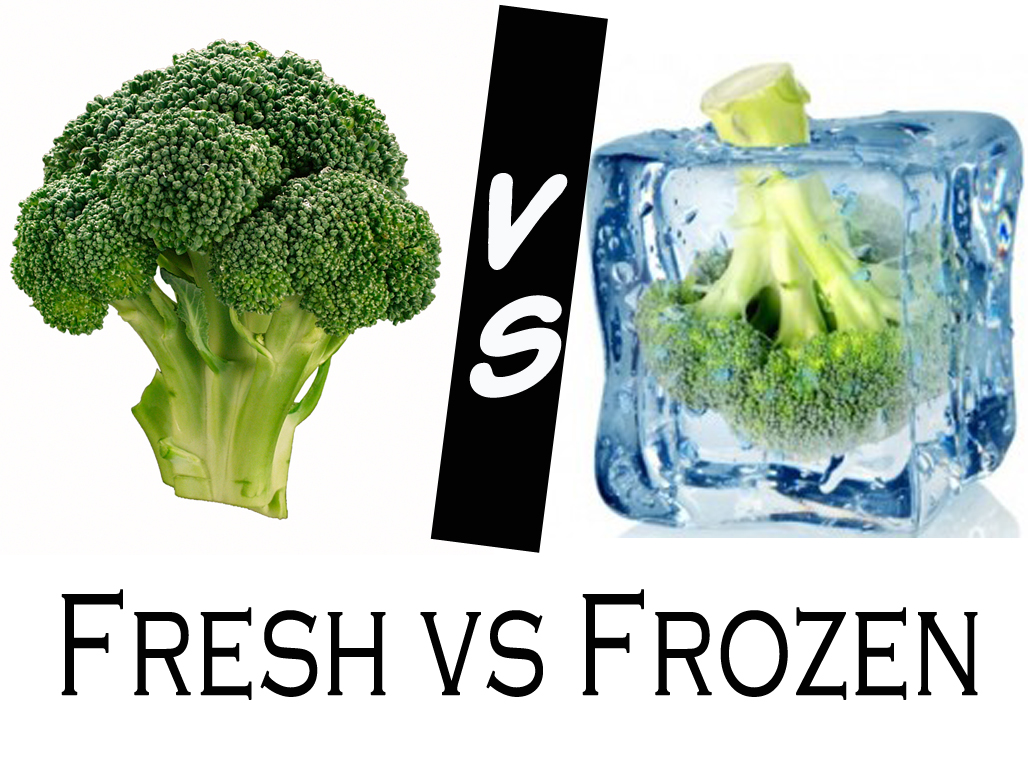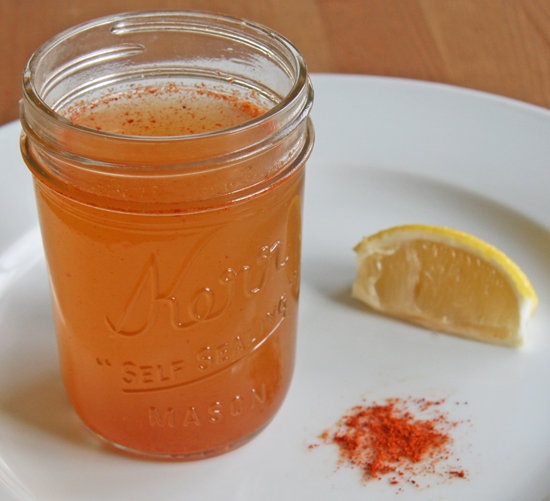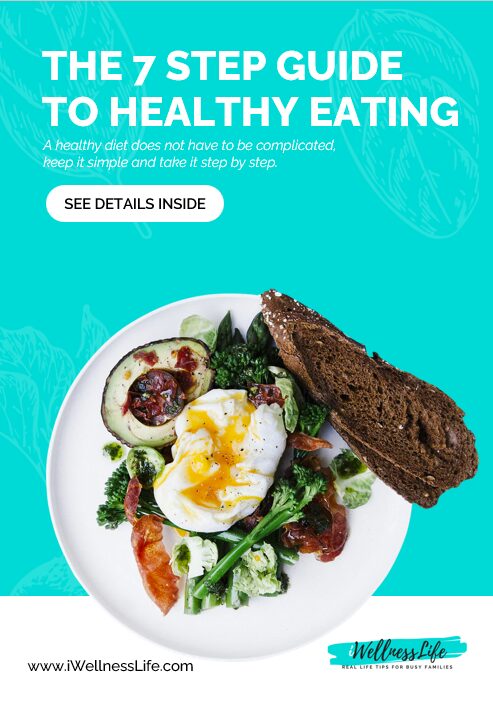Picture healthy food…you likely think of fresh fruit and vegetables, like juicy berries, ripe tomatoes, crunchy carrots and vibrant broccoli. All packed neatly in the fridge, ready for that inspiring smoothie, salad, stir-fry, or side dish.
That’s because we all know that fruit and vegetables is great for our bodies, protecting us against a variety of health issues, and they make us feel great, too.
But what about frozen fruit and vegetables…why doesn’t that spring to mind?
Despite storage and nutritional advantages, consumption of frozen fruit and vegetables is low compared with fresh…and continues to decrease.
It’s time to rethink what we know about fresh and frozen fruit and vegetables.
The Science
Fresh
Research into ‘Antioxidants in Fresh and Frozen Fruit and Vegetables’ by University of Chester and Leatherhead Food Research found that 66% of cases show a loss of antioxidants in fresh fruit and veg, such as polyphenols, vitamin C, beta carotene and lutein, compared to frozen.
Generally fruit and veg are over 90% water. Meaning that after harvest, the produce shows accelerated respiration, causing moisture loss, increasing the rate of spoilage.
So after they are picked, packed and transported, they continue to lose many of their nutrients in long distance travel and storage, before they reach the supermarket, and eventually your plate.
Frozen
Research from the University of Georgia also found that frozen produce retained more nutrients, than fresh produce.
This is because blanching and then freezing or snap freezing fruit and veg, moments after harvest, puts the process of naturally occurring enzymes on hold – which would normally lead to spoiling – locking in higher levels of vitamins and antioxidants, than ‘fresh’ varieties.
Vitamin C is the least stable nutrient, degrading immediately after harvest.
In a study of fresh green peas, they lost up to 51% during the first 24-48 hours, and will continue to degrade steadily. While prolonged storage (one year) at -18 to -20 degrees can average 20-50% loss.
THE BENEFITS
Fresh
There is no denying that fresh fruit and veg are more visually appealing, and often taste better than frozen varieties.
Minimal preparation and the ability to be eaten raw plays a huge role in the amount we consume, directly impacting our positive choices around eating more of the ‘good stuff’.
Sourcing local or regional produce can reduce time spent in storage, which will pump up the flavor and vitamin count
Frozen
Nutrient dense frozen produce are often budget friendly, require zero preparation and quick to cook, and you can store them for months in the freezer.
They give you an opportunity to eat fruit and veg that might be out of season or unavailable locally.
They can be a time-saver solution for an ‘antioxidant rich’ morning smoothie or ‘quick fix’ stir-fry in the evening.
PRO TIPS
Fresh
To keep your veg fresher for longer in the fridge, try storing it on a separate shelf away from fruit, to decrease the rate of spoilage.
For salad, explore hyper-nutrient leafy greens like rocket (arugula), romaine lettuce, chicory and watercress. Adding additional fresh herbs, like parsley and coriander (cilantro) will help boost flavour and increase nutrients.
For veg, steaming is a great option to help keep essential nutrients and vitamins. If you don’t have a steamer, try this DIY version: fill a medium pot with 1/2 inch of water, place three golf ball–sized balls of aluminium foil on the bottom, rest a heat-proof plate on top of the foil balls, cover the pot, and bring the water to a boil. Add vegetables to the plate, cover, and steam until tender.
While heating veg destroys some nutrients, it can make it easier for your body to absorb others, and taste great. So don’t be afraid to mix-it-up between raw, steaming, blanching and roasting.
Frozen
Always read the label on frozen fruit and veg packaging, some may contain unnecessary added sugar or salt.
Hot water is the vegetable’s worst enemy, so avoid excessive boiling. It causes nutrients to ‘bleed’ into the water. Instead, blanch them to preserve natures goodness. Remember, frozen veg is already blanched, so it doesn’t take long to prepare.
How to blanch: Bring a pot of water to the boil (with a pinch of salt). Throw in your veg. Keep checking until defrosted and tender (only a few minutes), then immediately transfer to ice water and drain (pat dry if required).
For frozen peas, simply run them under warm water until completely thawed. This helps keep them firm and delicious.
To maximise freezer space, try and get bagged fruit or veg instead of boxed. This will also minimise packaging waste.
THE WINNER…
Research into the nutrient content of eight common fruits and veg, at several different seasonal points over a 2 year period – split into fresh, fresh-stored (fridge) and frozen – found no significant difference in the nutrient content. The most important aspect for both fresh and frozen is to look at the overall quality of the original harvest, and ensuring no added ingredients or added preservatives are present, which is where organic and local produce can help.
Organic produce has been proven to contain similar amounts of nutrients as non organic produce…However, the key benefit is fewer pesticides, no genetically modified components and no synthetic chemicals…linking demonstrable health benefits with organic food consumption.
In summary, don’t be afraid of frozen fruit and veg, which have lots of great benefits that make them an excellent addition to your shopping list. All fruit and veg is great for our bodies, and are the healthiest foods available for us to eat.
Get your 5-a-day by combining fruit and veg from organic, local, regional, supermarket, farmers market, fresh, and frozen sources…depending on where you are at on your journey and budget.

Subscribe To Our VIP Newsletter
Join our VIP mailing list to receive additional content that goes even deeper into the latest tips to ensure you and your families health, fitness and wellness.





